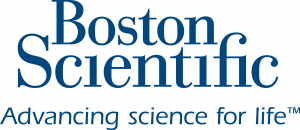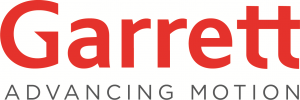Tax Alert: Government gives green light to tax reforms
31.08.2011Company: Deloitte
In its session on Wednesday, the Czech government approved a proposal for making significant tax, social security and health insurance reforms. The objective of the reforms is to simplify the tax system (primarily in direct taxation) and to create conditions for establishing the Single Collection Point.
ČESKY
The 'Single Collection Point' refers to a concept where the responsibility for collecting social security and public health insurance payments will pass from the existing institutions (ie social security authorities and health insurers) to tax administration bodies. These efforts necessitate bringing closer into line the legal regulations for personal income taxes and the relevant insurance and procedural rules for their administration, which represents one part of the amendment proposed by the government.
The second part relates to the upcoming direct tax reform as announced by the government. The proposed amendment to the Income Taxes Act seeks to reassess/eliminate various tax exemptions with the objective of putting into place a fair tax burden, as well as to simplify and better organise the tax system.
We set out below a summary of the key changes in corporate and personal income taxes, real estate transfer tax, gift tax, the tax code, value added tax and insurance acts that are proposed to be effective from 1 January 2013:
Income Tax Changes
- Abolishing the 'super-gross salary' concept, bringing into line the personal income tax base and the social security and public health insurance bases – the income tax base and individual insurance bases will be determined by reference to the gross salary;
- Increasing the personal income tax from 15% to 19%; however, this will not lead to a significant increase in the tax burden as a result of the abolishment of the super-gross salary concept;
- Introducing tax allowances for employees up to CZK 3,000 per annum, which is designed to offset the abolishment of certain tax relief following the audit of Income Tax Act exemptions (eg meal vouchers, free or discounted tickets, advantageous loans from employers, etc);
- Reducing housing support – the interest deduction will be capped at CZK 80,000 (previously CZK 300,000);
- Employees and their family members will continue to enjoy benefits in the form of recreation, healthcare, education, sport and other facilities and contributions to cultural and sport events but the exemption on this non-cash benefit will be capped at CZK 10,000 per annum. Under the hitherto valid wording of the act, recreation and holiday tours paid by the employer to the employee have been exempted up to CZK 20,000 per annum and, for example, the employer's costs of healthcare and educational facilities to be used by the employee were fully exempt for the employee;
- Simplifying the charging of tax-deductible provisions for receivables – the past-due categories are reduced to two and there is no longer any differentiation between receivables with a nominal value of up to CZK 200,000 and in excess of this amount. Tax-deductible provisions for receivables past due by more than 18 months (36 months) can be charged at 50% (100%). Tax-deductible provisions for receivables acquired by assignment with a nominal value over CZK 200,000 will be recognised under similar conditions but only subject to court, administrative or any other proceedings being initiated.
- The tax rate for investment, mutual and pension funds is decreased from 5% to 0%.
- Further extension of research and development support in the form of tax relief – advantages for cooperation in research and development among universities, public research institutions and the business sector.
- Introducing the single maximum limit for deducting gifts for charitable purposes to 10%.
- Introducing the "payment from the total of salaries", which should replace the social security, public health insurance and accident insurance paid by the employer. The base for the payment will be the total of the income of employees from dependent activities and employee benefits, the limit was determined as 48x the average salary and the number of employees. The payment period will be the calendar year and the payment will be made in prepayments.
- Introducing monthly income tax prepayments (payers whose latest income tax payment is CZK 200 thousand or lower will not be obliged to make a prepayment).
- Employers will be obliged to deduct prepayments for personal income tax, social security and public health insurance, file monthly reports separately for individual employees, and make an annual settlement (also individual).
- Newly, employers will be obliged to calculate the tax and prepare the annual settlement of prepayments and tax relief before 15 March (current version: before 31 March).
Changes in the definition of social security and public health insurance
- Introducing a single rate of 6.5% for public health insurance and pension insurance paid by the employer (there is a proposal to cap the public health insurance and social security at the level of 72x the average salary and 48x the average salary, respectively).
Other Changes
- Social security and public health insurance will be administered by tax administration bodies based on the Tax Code.
- The taxation periods of personal income tax, social security and public health insurance will be harmonised to match the annual taxation period.
- Tax and insurance will be filed on one form and paid in one payment.
- Companies that have a data box or companies whose financial statements are subject to an audit will be obliged to make selected filings (eg tax returns, registration application, etc) solely in electronic form.
- A single period for tax and insurance of 3 years (with the possibility to extend the period to the maximum length of 10 years) will be introduced.
- The exemption from real estate transfer tax in respect of investments of real estate in business companies and associations will be limited only to transfers of ownership of real estate between territorial self-governing units and business companies or associations provided that the territorial self-governing unit or state is the owner or a member thereof.
- The turnover for the obligatory VAT registration will decrease from CZK 1,000,000 to CZK 750,000.
Currently, the amendment is to be presented in the Chamber of Deputies. However, the text of the amendment presented to the government by the Ministry of Finance contained (in addition to the above changes) other significant amendments to the tax system relating to, for example, investment incentives and taxation of dividends, which were changed after they were discussed by the government. The reworked version of the amendment prepared at Wednesday's meeting of the government is not yet available – we will provide you with information on these changes as well as detailed information on the Single Collection Point project in our next issue.
If these issues relate to your company, we would be happy to provide you with more detailed information. Feel free to contact us at any time.








